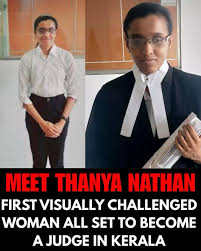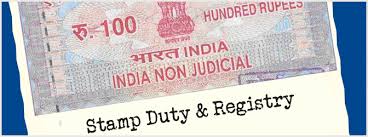Markby, J.@mdashIn this case it appears that on the 6th of Baisakh 1198 B.S. (1791) an arrangement was made between the Maharaja of Burdwan and one Ram Narayan Chowdhry, through whom the defendants claim, for an exchange of two pieces of land, one comprising 175 bigas held as dewatar lakhiraj in Mauza Kinduli; the other comprising 441 bigas of mal lands in Mauza, Gurbari. What was intended by this transaction I take to be this, that the 175 bigas which were formerly lakhiraj of Kinduli should cease to be so, and the 441 bigas which were formerly mal of Gurbari should become lakhiraj, the result as regards the revenue being the same, inasmuch as the collections of the two plots were the same, namely, rupees 500. Subsequently the Maharaja fell into arrears of revenue in respect of the Taraff Manteswar and a portion thereof, the Huda of Mukondpore, comprising the Mauza Gurbari in which 441 bigas are situate, was sold by the Government to one Gattinath Roy, who on the 26th Magh, 1201, sold to Ram Narayan Chowdhry 10 of the mauzas situate in this Huda, including Gurbari.
2. In the year 1834 the Government, at the instance of an informer, took proceedings to resume 550 bigas of land, including the 441 bigas now in dispute. The Collector of Hoogly dismissed the claim of the Government, being of opinion that though the exchange having been made subsequently to 1st December 1790 was invalid so far as it attempted to create a lakhiraj by reasons of the provisions of section 10, Regulation XIX of 1793, yet that under those provisions only the zamindar, and not the Government, was entitled to resume.
3. How, or at what date, the zamindari rights in respect of Gurbari passed out of the hauls of the ancestors of the defendants does not appear; but it appears that at some time prior to 1867, three persons, namely Mangobind, Gopikrishna Ghose, and Iswar Chandra Ghose, had been recorded in the Collector''s books as proprietors of Gurbari. These parsons being owners of specific portions of Gurbari, applied to the Collector, u/s 11 of Act XI of 1859, and the Collector opened separate accounts with each of them for the revenue of their respective shares.
4. The revenue payable in respect of the share recorded in the name of Iswar Chandra Ghose having fallen into arrear, that share was put up for sale u/s 13, and purchased by the plaintiff. The plaintiff claimed as part of the share, which he had purchased, the 441 bigas given in exchange by the Maharaja of Burdwan to the predecessors of the defendants, and which, after the zamindari rights passed out of their hands, had still remained in their possession. In the sale certificate the share of Iswar Chandra is described as consisting of 1,475 bigas, and I assume, for the purposes of the argument, that the 441 bigas are comprised within the 1,475 bigas which constituted Iswar Chandra''s recorded share.
5. The defendants refused to give up possession of these 441 bigas to the plaintiff, and he accordingly brought this suit to recover possession. Other property is also claimed in this suit, but the question now under consideration relates to 441 bigas only.
6. The Subordinate Judge held, that as the plaintiff was the purchaser of a share, and not of the entire estate under the provisions of section 11 and section 54, he stood in the position of Iswar Chandra only; and that as Iswar Chandra had not chosen to call into question defendants rights, and more than twelve years had elapsed since Iswar Chandra''s title to resume or assess had accrued, the plaintiff was barred under clause 14 of section 1 of Act XIV of 1859.
7. The respondent, besides supporting the judgment of the Court below, has also called in aid the proviso of this clause which declares that no suits shall be maintained even within 12 years from the time when the title of the plaintiff or the person through whom he claims first accrued, if it be shown that the land has been held lakhiraj from the time of the permanent settlement, and he has further relied on Regulation II of 1805.
8. It appears to me that in this case it is not necessary to go beyond the last of these several provisions of the Legislature for the protection of persons in possession. Had Iswar Chandra himself brought this suit, he would have been undoubtedly barred under the first branch of the third article of section 3 of Regulation II of 1805. The cause of action, which is in this case founded on the right to dispossess, undoubtedly arose immediately on the passing of Regulation XIX of 1793, which by section 10 authorized and required the proprietor responsible for the revenue to dispossess the grantee of lakhiraj lands, if the grant were subsequent to the 1st of December 1790. Had Iswar Chandra been the plaintiff in this case, this cause of action would have been transmitted to him, but no suit could be maintained upon it by Iswar Chandra at any rate after the 1st May 1853, that is, 60 years after the date when it first arose. This view is I think fully supported by the case of
9. The question therefore is whether the purchaser of Iswar Chandra''s share stands in any bettor position than Iswar Chandra himself. If so it must be by reason of the circumstances under which this sale took place. It was a sale by the Collector for arrears of revenue under Act XI of 1859. Now there is here no question of the operation of section 37 which is expressly limited to the case of the sale of the entire estate. The plaintiff therefore cannot claim the benefit of the provision in that section, that the purchaser shall acquire the estate free of all encumbrances and may avoid and annul all under-tenures. The plaintiff purchased at most that share of the estate in respect of which arrears of revenue were due. That is all the Collector had power to sell or professed to sell u/s 13. Now assuming that Iswar Chandra, though he must have been already barred u/s 3 of Regulation XIX of 1793 from recovering possession or rent in respect of these 441 bigas, could, as recorded proprietor of the share in which they were comprised or otherwise, enter into a valid arrangement with the Government for the apportionment of the revenue u/s 11 of Act XI of 1859; and assuming also, as was so much insisted on by the Advocate-General, that what has been sold and conveyed to the plaintiff is not Iswar Chandra''s right and interest in the share, but the share itself in respect of which the revenue was separately assessed, still I should come clearly to the conclusion that the plaintiff did not acquire that share free of encumbrances or with the right to avoid under-tenures. That right is only conferred on purchasers of an entire estate. It is a right which could not exist except by express provision of the Legislature. The principle of the revenue laws appears to me to be that the person responsible to the Government for the revenue is the owner of the land, though that ownership and all rights created out of it are liable to extinction. But that extinction is not an absolute one, following simply upon a default in payment of revenue even when that default is followed by a sale. The Government has clearly laid down when and to what extent that extinction takes place. It takes place upon the sale of an entire estate under the provisions of section 37, and then only subject to certain reservations. Upon the sale of a portion of an estate u/s 13 it does not take place at all. If it did so by virtue of the sale itself, it would be without the reservations contained in section 37, and the sale of a portion would be more destructive than the sale of the whole. Upon the wording of Act XI, I can come to no other conclusion than that the purchaser of a share, though he may not be said strictly to claim through the defaulting owner, nevertheless acquires the share recorded in the name of the defaulting owner, subject to all rights created by or gained against him or his predecessors.
10. I should have come to this conclusion upon the general provisions of the Act and the principles upon which it appears to me to be founded. But if there could possibly be any doubt upon this subject, I think it is made quite clear by section 54 which provides that when a share is sold, the purchaser shall acquire the share subject to all encumbrances, and shall not acquire any rights not possessed by the previous owner.
11. The result is, in my opinion, that assuming the 441 bigas now under consideration to be comprised within the 1,475 bigas which formed the recorded share of Iswar Chandra, the plaintiff cannot maintain this suit to recover them, and that to that extent it ought to be dismissed.
12. I have said what appears to me sufficient to dispose off this case. I have taken a somewhat different view from the Subordinate Judge, because I think that is a simpler mode of arriving at a conclusion, but I do not wish it to be thereby inferred that I differ from the view taken by the Subordinate Judge. Upon the points of law on which he dismissed the suit, I express no opinion. The regular appeal is dismissed with costs.
Kemp, J.
I concur in this judgment.

